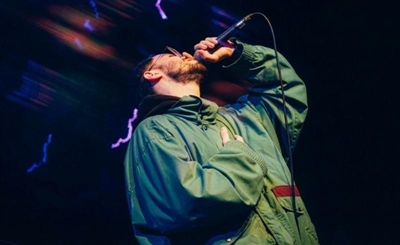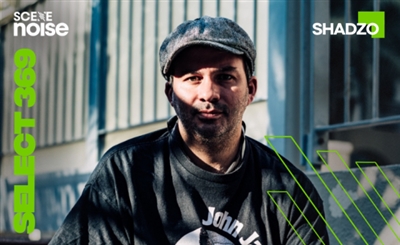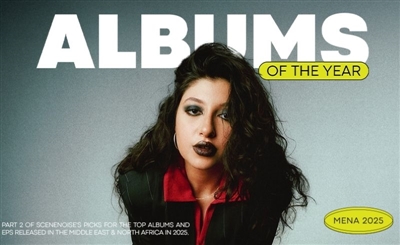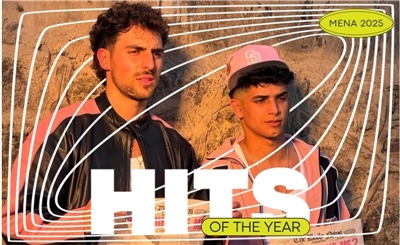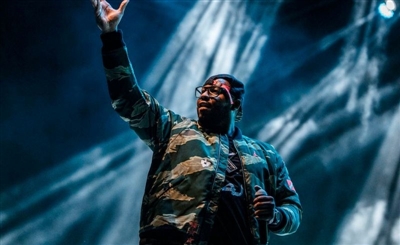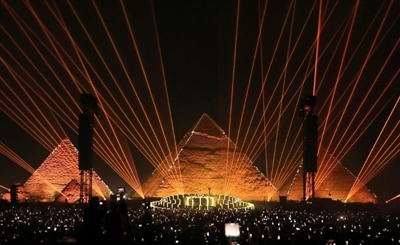Premiere: Zeyada's Debut Single "Beit" is an Immersive Song With The Video To Match
We speak to Zeyada to know more about her background, the concept behind “Beit,” and her future plans, which seem promising.
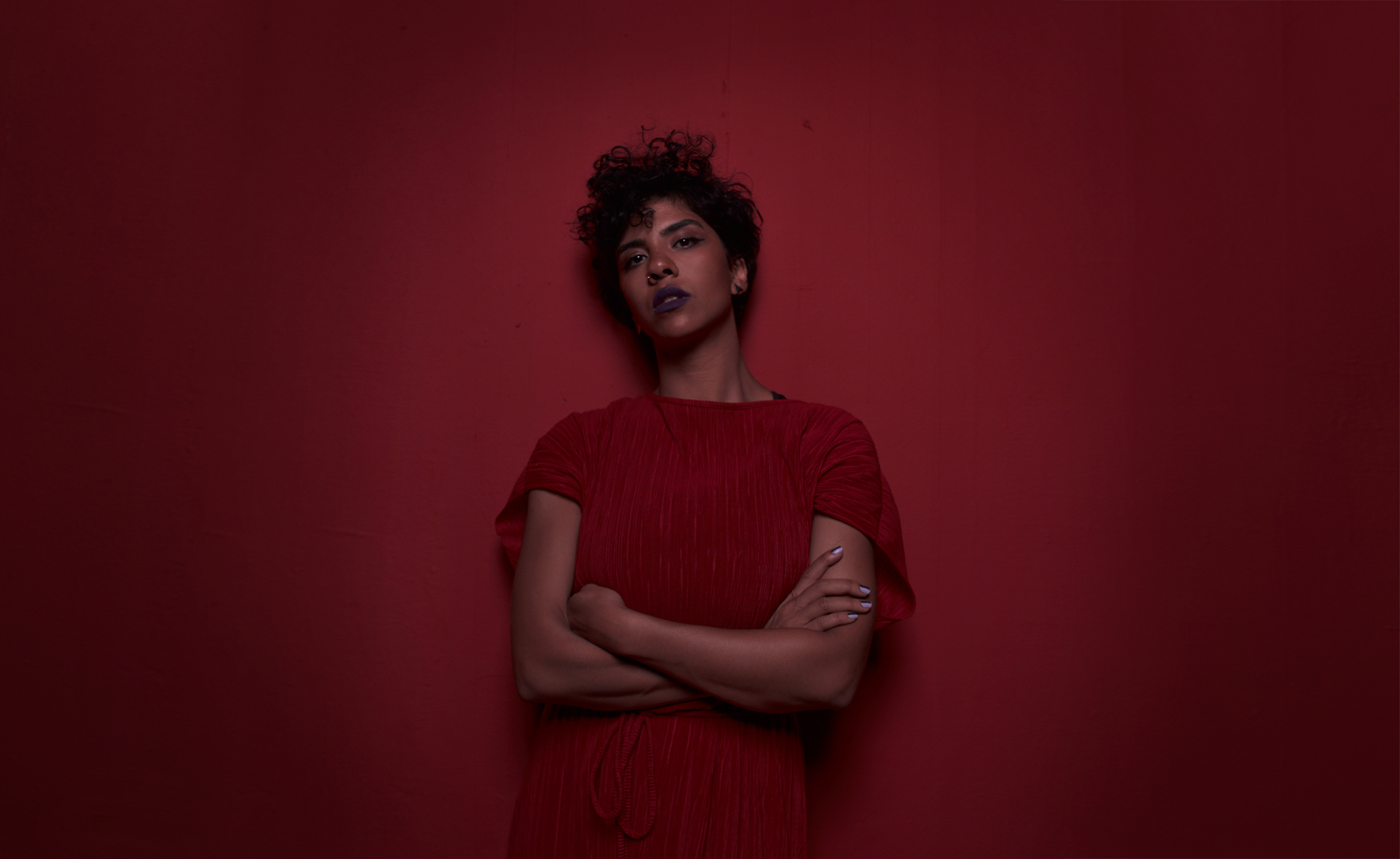
Cairo-bred, New York-based multi-disciplinary artist, Rola Zeyada, is on a constant hunt for adding depth and meaning to her artistic nuance, often presenting a full and immersive reflection of her thoughts and feelings. It all started when she moved to New York in 2013, which put her slap bang in the middle of an artistic hub hat provided an opportunity for her to learn from many fellow artists and friends, and join visual art school.
When we first heard debut single ‘Beit’ (translated: Home), we were blown away by the quality of the song and the music video, that we couldn’t not premiere it. In terms of music, ‘Beit’ is an organic pop composition unlike anything Arabic you’ve heard before. Her angelic vocals are backed by shimmery guitars and slide guitar that give it a sense of psychedelia. Playing the music with her are Mada Khaled and Sherif Asfour, who are also part of Fulltone, the Egyptian electronic music trio.
Asides from the magical sonic aspect, Zeyada succeeded in delivering a full fledged duotone inspired visual experience that precisely reflects the meaning behind the track — as she worked on many aspects of the visual process, such as the direction, editing and styling of the music video, with the help of Abdallah Sabry, Nour Eldin Ahmed and Karim Khashaba, who were in charge of the cinematography and helped with the editing.
Although it’s an independent effort, the outcome is highly impressive in terms of both audio and video. In this interview we speak to her about her approach to the arts, the m among behind ‘Beit’ and her future plans.
<iframe src="https://www.facebook.com/plugins/video.php?href=https%3A%2F%2Fwww.facebook.com%2FSceneNoise%2Fvideos%2F2345468628814420%2F&show_text=0&width=560" width="560" height="315" style="border:none;overflow:hidden" scrolling="no" frameborder="0" allowTransparency="true" allowFullScreen="true"></iframe>
Tell us about what you do other than music.
I actually went to school for visual art, and right now i’m getting my masters in film and new media arts. So pretty much anything art related. I try to gather as many different skills as possible to be able to create some kind of experience through my work; something more immersive than sound or video alone.
How long have you been making music for?
About five or six years. I used to write little pieces of songs here and there as a kid and perform a few random shows with friends, but I never thought I had the proper training or vocal strength to actually be a singer/musician. It wasn’t until I went to study in New York in 2013 that I made friends who happened to be musicians, so they kind of slowly pushed me to start singing. Since then, I’ve just been slowly teaching myself instruments and new vocal techniques, and with the help of some really talented friends I’ve been working on a bunch of different projects all in different styles.
Where do you draw your inspiration from?
That’s a pretty difficult one to pinpoint. Everything? I feel like it’s kind of redundant to fixate on a theme for inspiration. I could be obsessing over one idea for a day or a week and then shift completely to something different the next, so I try to keep an open mind to what can be considered inspiration for a new piece and not get stuck on a theme or genre. I feel like the entire concept of genres is no longer applicable or even really relevant. If artists feel boxed in specific genres or styles, it can be pretty difficult to make something that’s actually new and interesting.
How did moving to the U.S influence your music?
Being in New York exposed me to more types of music and art than I can even name. There are so many talented people there, from all over the world, each trying to stand out and make something different. Competition is high, to say the least, so I know I need to constantly be working on myself and my craft. At the same time there is a unique sense of comradery or even collectiveness - like we are all kind of here for the same reasons, so you learn to find and build interesting collaborations and friendships in the process, and, not to sound cheesy, you do learn something new from every new person/artist you work with.
Why do you sing in Arabic although you live in the U.S?
I did write in English for a few years before I even attempted Arabic. Even though I grew up and lived my whole life in Egypt, writing in English actually came a lot easier to me, like I would expect is the case with many of us millennials. I mean if you’re a millennial, you probably grew up with the internet, and most of us were downloading music and listening to it on iPods by middle school if not earlier. Most of our references to music come either from western music that we individually downloaded, the occasional rock or jazz radio channel, or, naturally, our parent’s radios playing Om Kolthoum or some other classical tunes. We didn’t really grow up with a lot of references to modern independent Arabic music(not pop), so I think that makes it more difficult for us to even begin to imagine what that might sound like and how to write for it.
However, I do think that this lack of references allows for a lot more creative freedom when writing, it’s like you’re writing your own genre as you go. Arabic is such a rich and difficult language, I found it so much more interesting and challenging trying to figure out what my sound would be in Arabic than just writing what came more easily and recognizably in English.
How did you get the idea of the song? Is it based on real life situation?
I’d call it more of an observation. It’s another one of these generational things, I think we’re at a weird point in time in terms of social values in Egypt. We come after a time(our parents time)when there was plenty of resources but limited personal freedoms, specifically for women, now we’re at a point where more and more women(as well as single men) are becoming fully independent of their families, yet there is still the pressure, or need, to have more resources, basically more things.
So I think there’s this constant internal struggle between the desire to have a fulfilling life and career, and the need for stability and security, which is often associated with material possession. I think this song can be read as a kind of caricature, an exaggerated image of that need for security through things, to the extreme point of trying to surround yourself with everything you might ever need.
Do you write your own lyrics? Or does someone do it for you?
Yes I do write my own lyrics and basic chord progression, I usually then will get together with the band, and they would help me record and write the music for whichever instruments we’re using.
What’s the concept that lies behind the music video?
When thinking about this project, I wasn’t really interested in telling a linear story, but more in relaying a state of being. The video dives a step further into the psyche of this character, showing an overwhelming sense of emptiness and dreaminess. She sings about a home filled with everything, so she never has to leave, meanwhile she sits in a big empty house where nothing really works. All of the props used for the video were pretty antiquated and absolutely not functional; the rotary phone is old and unplugged, the TV is stuck on static, and the plant is damn near dead. Even in the few shots where the character is performing an action; the action is clearly useless and is sort of just mindlessly performed. The shots move back and forth between these foggy dreamy sequences and the almost confrontational scenes where she directly addresses the camera, bouncing between conscious thoughts and mindless performance.
What are your future plans? Any releases lined-up?
Yes, I’m actually super excited to be working on another music video for a new single, this time an English song, to be released pretty soon within the next two months. I also have plans to release an EP around the time of the new year. Until then, I am planning some live shows over the next few months in both New York and Cairo!
- Previous Article Getting Abyusif
- Next Article 23 Must-Watch Middle Eastern Music Documentaries
Trending This Month
-
Dec 24, 2025
-
Dec 23, 2025



